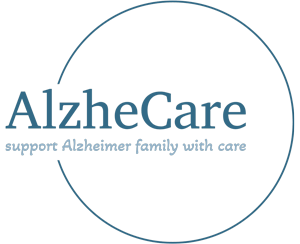The Progression of the Condition
Alzheimer’s disease can last for more than a decade. Learn about common behaviors observed at different stages of the disease’s progression.
From the staff of Mayo Clinic
Alzheimer’s disease often progresses slowly, worsening over several years. Eventually, it affects most parts of the brain, impacting memory, thinking, judgment, language, problem-solving abilities, personality, and motor skills.
Alzheimer’s disease is typically divided into five stages:
- Preclinical Alzheimer’s disease
- Mild cognitive impairment (MCI) due to Alzheimer’s disease
- Mild dementia due to Alzheimer’s disease
- Moderate dementia due to Alzheimer’s disease
- Severe dementia due to Alzheimer’s disease
The term “dementia” refers to a group of symptoms severe enough to affect intellectual and social abilities, disrupting daily functioning.
These five stages provide a general understanding of what to expect, but they are only rough guidelines. Alzheimer’s is a continuous process, and symptoms vary widely between individuals.
Preclinical Alzheimer’s Disease
Alzheimer’s disease may begin long before noticeable symptoms appear. This stage, known as preclinical Alzheimer’s disease, is usually identified only in research settings. At this point, neither you nor those around you will notice any symptoms.
This stage may last for years or even decades. Although you won’t detect changes, advanced brain imaging technologies can identify amyloid plaques and neurofibrillary tangles. These tangles form when tau proteins change shape and aggregate, hallmark signs of Alzheimer’s.
Recognizing these early changes is crucial for clinical trials investigating treatments that may delay or prevent symptom onset. New biomarkers detectable in blood samples are also helping to identify increased risks of Alzheimer’s disease, supporting diagnoses even before symptoms emerge.
Genetic testing can reveal an elevated risk of developing Alzheimer’s, particularly for early-onset cases. However, genetic testing isn’t recommended for everyone and should be discussed with a healthcare provider.
Mild Cognitive Impairment (MCI) Due to Alzheimer’s Disease
Individuals with mild cognitive impairment may experience slight memory and thinking changes that aren’t severe enough to interfere significantly with daily activities. They may struggle with remembering conversations, recent events, or appointments.
People with MCI may also find it challenging to estimate time or plan and execute steps for a task. While not everyone with MCI develops Alzheimer’s, similar medical procedures used to identify preclinical Alzheimer’s can help determine whether MCI is due to the disease.
Mild Dementia Due to Alzheimer’s Disease
Alzheimer’s is often diagnosed during this stage when symptoms become evident to family members and doctors. These symptoms affect daily life and include:
- Memory loss, particularly of recent events. Patients may repeatedly ask the same questions.
- Difficulty solving problems, completing complex tasks, or making sound judgments. Activities like planning family events or managing finances become challenging.
- Personality changes, such as increased withdrawal or irritability, especially in social situations.
- Trouble organizing thoughts and expressing ideas clearly.
- Misplacing items or becoming disoriented, even in familiar surroundings.
Moderate Dementia Due to Alzheimer’s Disease
As moderate dementia sets in, patients experience heightened confusion and memory loss, requiring more help with daily activities and self-care.
Symptoms at this stage may include:
- Poor judgment and increased disorientation, such as forgetting the time, date, or location.
- Mistaking familiar people for strangers or mixing up relationships.
- Wandering or getting lost while seeking familiar surroundings, making it unsafe for them to be alone.
- Forgetting personal history details, like addresses or school names.
- Needing assistance with daily tasks, such as dressing appropriately for weather or occasions.
- Significant behavioral changes, including paranoia, hallucinations, or aggression.
Severe Dementia Due to Alzheimer’s Disease
In the final stage, severe dementia, mental functions continue to decline, and physical abilities are greatly affected.
Symptoms may include:
- Loss of ability to communicate clearly, with only occasional words or phrases.
- Complete dependence on caregivers for personal care, including eating, dressing, and bathing.
- Declining physical abilities, such as difficulty walking, sitting, or even holding up the head without assistance. Reflexes become abnormal, muscles stiffen, and swallowing becomes impaired.
Progression Speed and Life Expectancy
The progression of Alzheimer’s varies significantly between individuals. On average, people live 3–11 years after diagnosis, though some live 20 years or longer. Factors like the extent of brain damage at diagnosis and untreated vascular risk factors (e.g., high blood pressure) can accelerate the disease’s progression.
Common causes of death include pneumonia, due to swallowing difficulties leading to lung infections, as well as dehydration, malnutrition, falls, and other infections.

